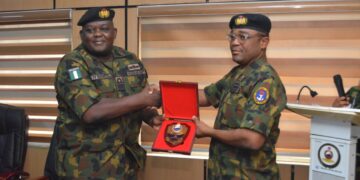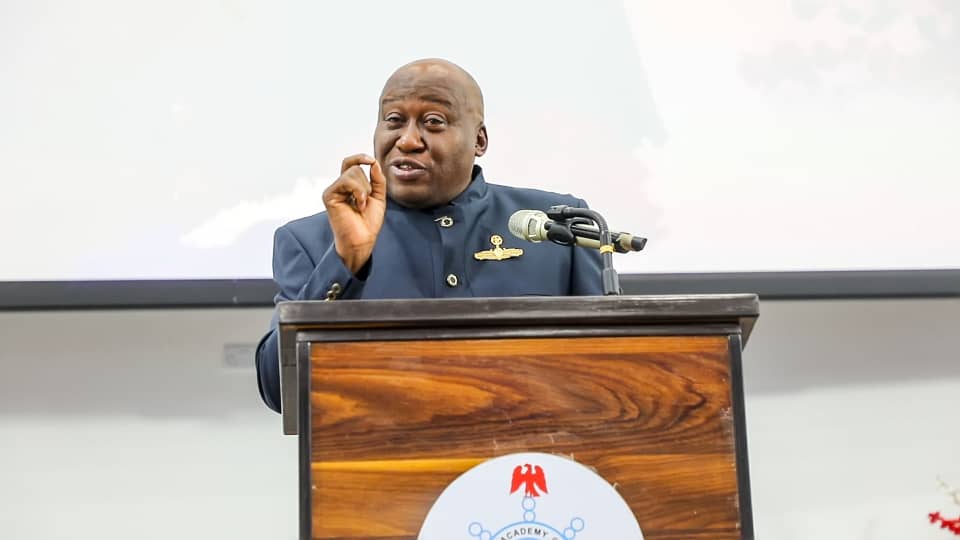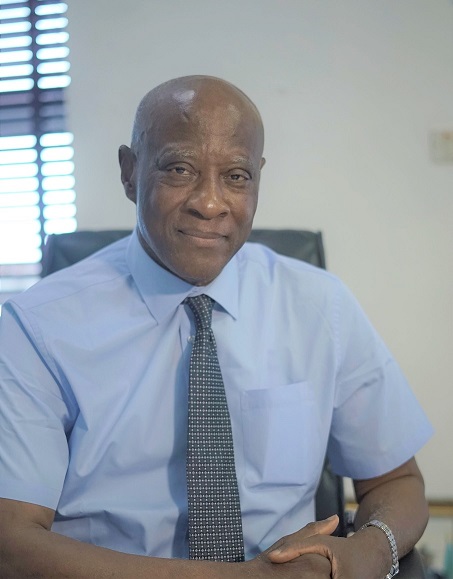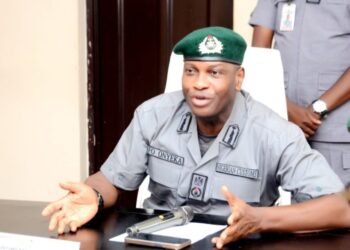The Maritime Academy of Nigeria, Oron, Akwa Ibom, is transforming the manpower development space for the Marine and Blue Economy in Nigeria and beyond.
The Academy recently concluded training on IMO Model Course 6.09 for Instructors from JABEEB Consult Ltd., AvantGuard Security Solution, Marojion Marine and Maritech Academy, who all came from across the country to upgrade and sharpen their teaching skills.
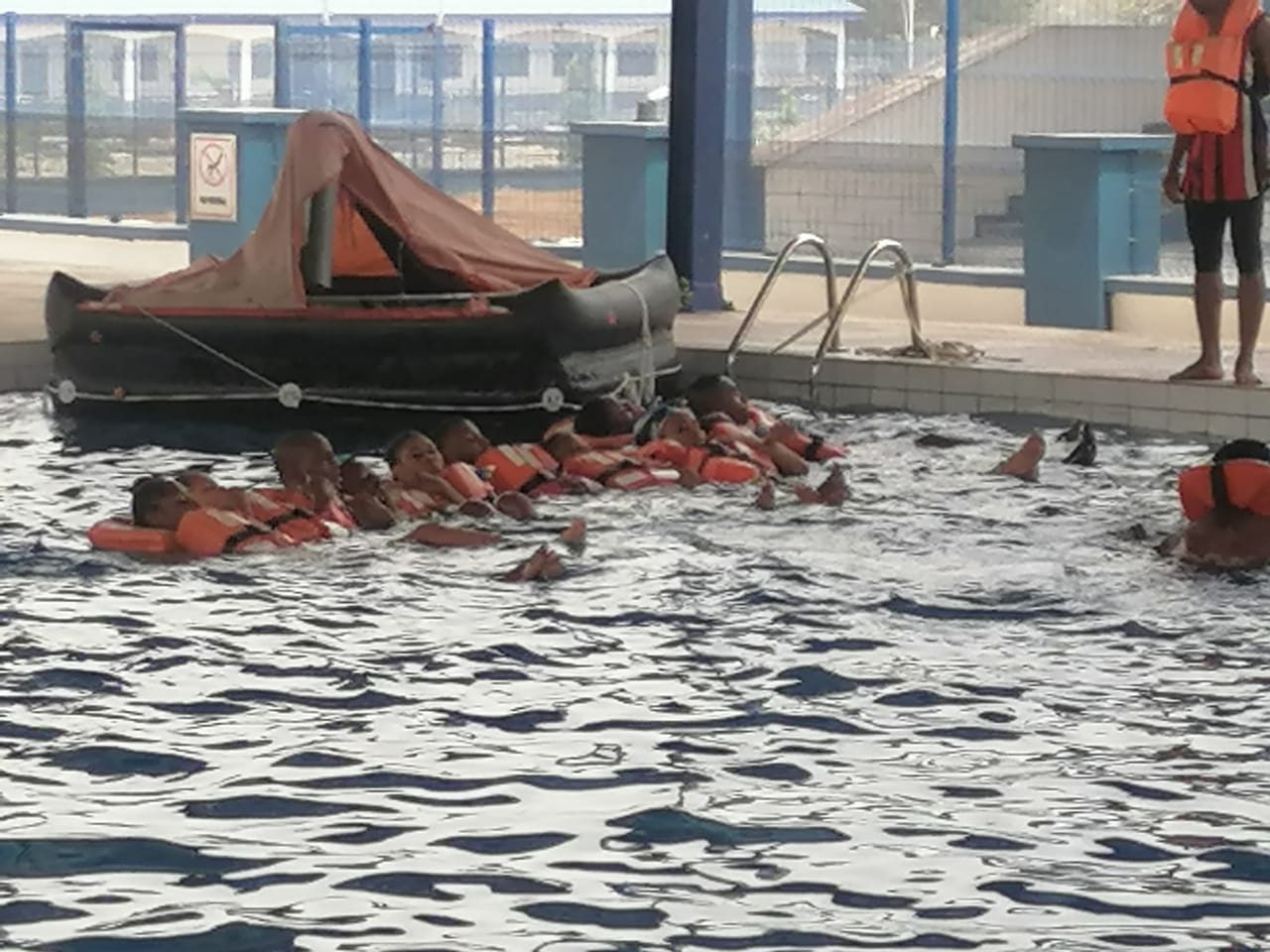
The Academy has also become remarkable for welcoming collaborations with other maritime institutions that may have the need of utilising the institution’s state-of-the-art training facilities to boost the learning experiences of their workforce.
Speaking about the initiative of training even instructors of other Maritime Training Institutions, Rector of the Academy, Commodore Duja Effedua (Rtd.), said that the Academy is fulfilled to support good foundations for maritime training for the benefit of the country, which certainly comes as first interest.
“For the sake of national development of our maritime operations, we are open to discussions with similar institutions that may wish to take advantage of our equipment to improve on their training at discounted rate,” the Rector said.

The two-week train-the-trainer programme, which graduated about thirteen participants, was designed to facilitate delivery of training in the competence standards as required by the International Maritime Organisation (IMO), for Standards of Training, Certification and Watchkeeping for Seafarers 1978, as amended, including 2010 Manila Amendments.
Sharing his experience, the Managing Director of JABEEB Consult Ltd., Engr. Augustine Juweto, who expressed his admiration for the Academy’s advantageous learning environment, comparing it with what obtains abroad, said, “Years back when I came here for some courses, the facilities were moribund. Now I can comfortably say that there is one hundred per cent transformation of all the facilities, the environment is serene and conducive to learning. This is comparable to what is applicable outside this country. The Rector has done wonderfully and I want to really commend his efforts,” he said.
To the credit of the Academy also, is its training of up to forty participants from allied nations, owing to the quality of its Faculty and infrastructure for maritime education development.
It would also be recalled that the Academy recently introduced a training and Entrepreneurship Centre for skill acquisition on outboard engine maintenance and repairs for boats engaging in inland waterways transport operations.
According to the Rector, it is to give opportunity to those who may not be qualified to come in for cadetship training. He said this would enable such people come and learn the skill, build self-efficacy and be able to begin a business in that sub-sector of the marine and blue economy.
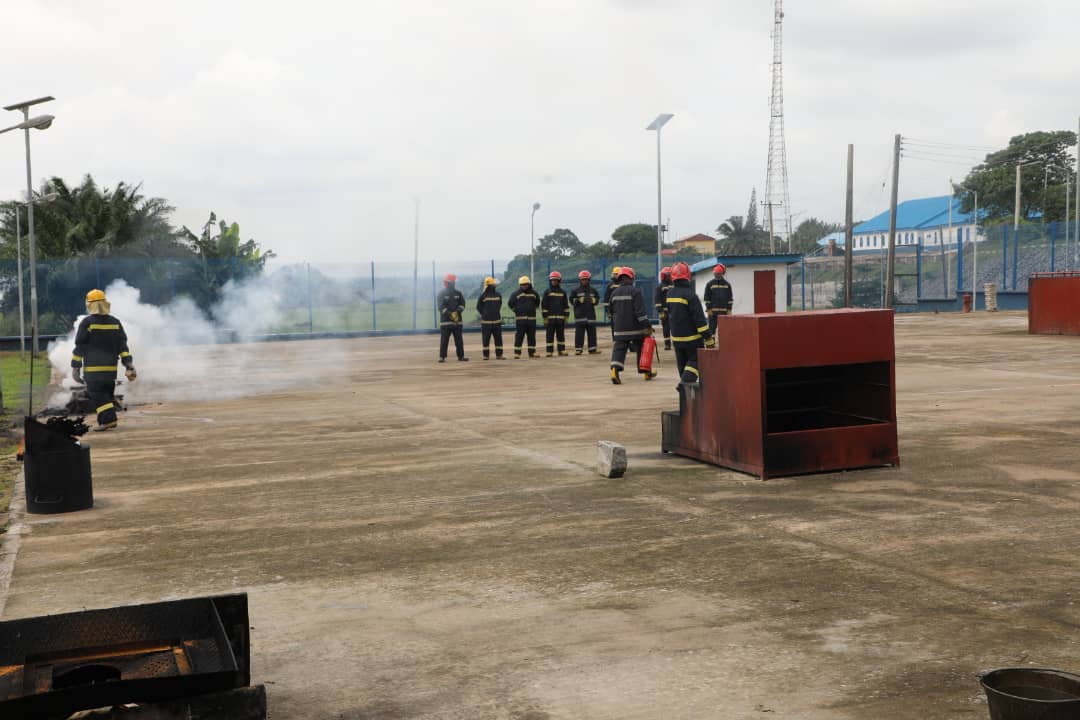
He added that the essence of contributing manpower capacity to the Marine &Blue Economy is to ensure that the provision rubs off on all along the value chain of marine operations, including those in the local operations of water transportation and fishing.
“We are putting to good use the advantage of the training facilities that we have, because no other institution of maritime training has what we have as of now, considering the simulators and others things, among the Maritime Training Institutes (MTIs). So, we are doing everything possible to ensure that we build capacity to empower the Blue Economy.
“Apart from that, we are re-engineering the system; bringing more people on board. It is not only those who have the requisite qualifications to become cadets. We have set up the Entrepreneurship Directorate, which would catch those who don’t have even have school certificate, but can contribute to the Blue Economy. For example, the Boatyard, which we are organizing would be a Centre where we would train people to build and maintain outboard engine and some engines onboard ships.
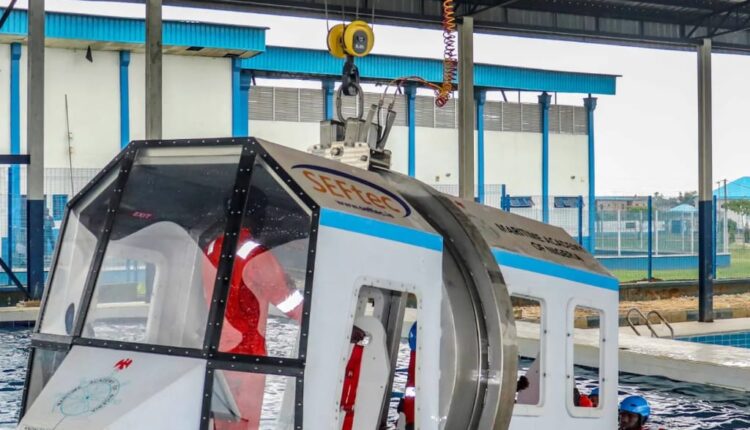
“So, these mechanicians can be trained and that can take more people off the streets and power the Blue Economy by repairing the machineries which seafarers use to project the Blue economy plying their trade. For these set of people, they are trained for up to three months so that they can be certificated and would be able to work on their own.
“We know that the Blue Economy extends to the rivers, not just to the oceans. If the man is able to go to places where they use river transportation, he could set up a tent for himself and be repairing outboard engines for these who work with the power boats, and that can give him income as he plays in a vital aspect of the Blue Economy,” Effedua said.
The Rector also disclosed that the Academy has further given a boost to its Faculty, as it ensures to maintain global standard for quality maritime education delivery.
His words: “We have also added two professionals to our teaching crew. We are expecting more hands both locally and internationally, because as an internationally school, known worldwide, we have to project that image with our professionals and in the seafarers we train. The beauty of it is that, these professionals applied on their own having seen what we have here. More professionals are coming and we are glad to have our Faculty of lecturers grow steadily.”
The Academy has also granted training opportunity to Bricks Mursten Mattoni, Nigerian Maritime University, Okerenkoko in Delta State, and several others.












